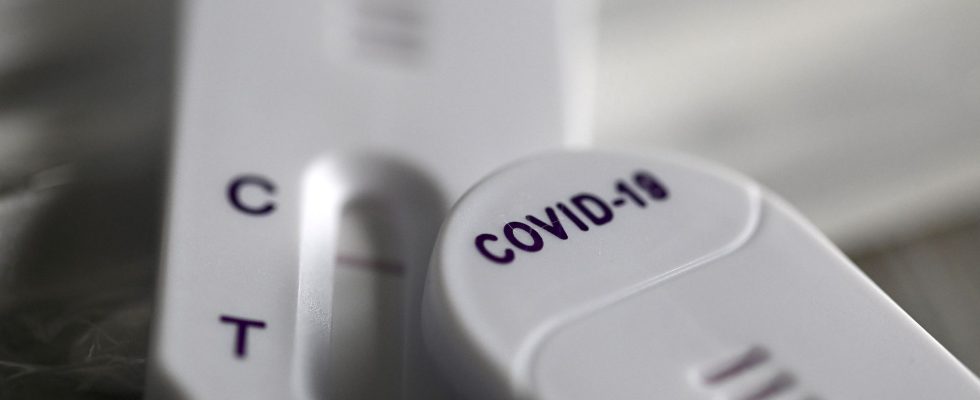Shortness of breath, fatigue, persistent cough… Between 10 and 30% of people who test positive for Covid-19 then suffer from a long Covid, according to the National Institute of Health and Medical Research (Inserm). If the symptoms of the disease normally disappear after two or three weeks, the long Covid persists for several months or even years.
But why do some patients heal faster than others? A research team from Inserm, associated with the University of Minho in Braga, Portugal, published their theory in the journal NatureCommunications. According to her, the long Covid mainly strikes people whose immune system is less efficient. They fail to defend themselves against the virus, and it settles where it can persist: in the mucous membranes.
The intestinal mucosa, a “Trojan horse”
These tissues line the cavities of the body, such as the bronchi or the nasal passages. But according to Inserm, SARS-CoV-2, the Covid virus, is mainly lodged in the intestinal mucosa. “She is more permissive than the others”, explains to L’Express Jérôme Estaquier, researcher at Inserm. “It’s tuned to tolerate microbes that are used for digestion. So for a virus, it’s a real Trojan horse: it can stay there without being identified as a threat.” This strategy is also found in other viruses, for example HIV.
To reach these conclusions, the French and Portuguese teams analyzed the immune system of 164 people: 127 who had been infected six months earlier, half of whom had developed a long Covid, and 37 “control” people, who had not been infected. . The researchers were mainly interested in “blood markers”, “reflecting the presence of the virus”, notes Jérôme Estaquier.
In detail, they noted in patients with long Covid a small amount of a CD8 cell subtype expressing integrin b7, involved in the elimination of the virus. They also identified excess IgA antibodies, and very high levels of interferon IP-10. “These three markers show that the virus could be more present in the intestinal mucous membranes, persist, and lead to a longer form of Covid”, summarizes Jérôme Estaquier. Inserm must now validate this theory on a larger scale. The objective is, in the long term, to diagnose the long Covid more quickly and more easily.
